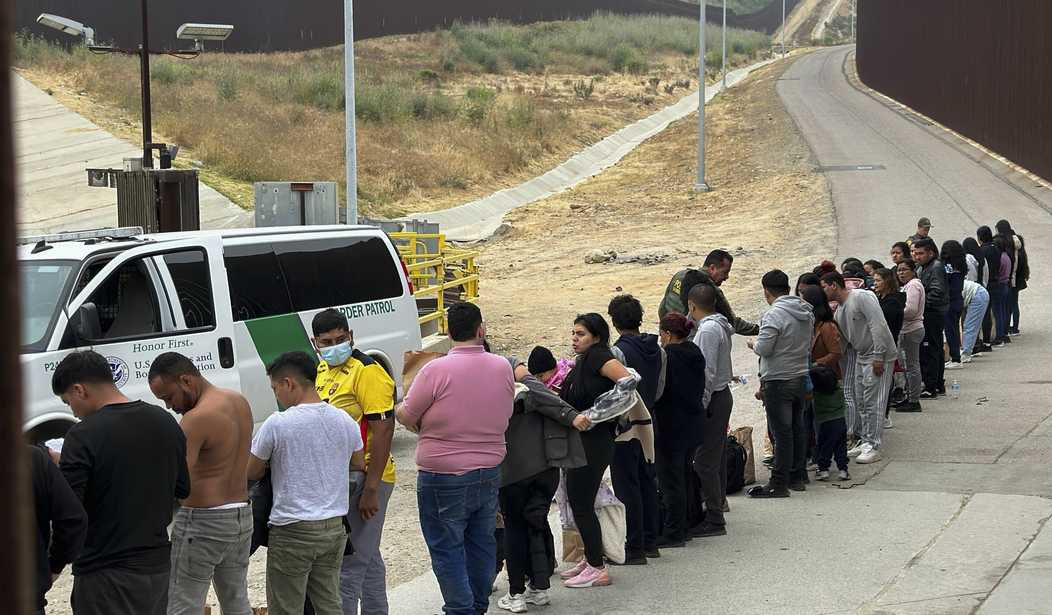President-elect Donald Trump has pledged to "launch the largest deportation of criminals in American history." That is a quote from a Nov. 2 rally in Salem, Virginia, but Trump has said precisely the same thing dozens of times. Still, through the course of a long campaign, with his improvisational style, Trump has occasionally worded his pledge differently. For example, at his Madison Square Garden rally, Trump said, "On day one, I will launch the largest deportation program in American history to get the criminals out." Back on May 24, at his rally in the South Bronx, Trump pledged to "immediately begin the largest criminal deportation operation in our country's history." So variations in wording aside, when Trump talks about mass deportation, he is talking about the mass deportation of criminals.
It's hard to imagine opposing Trump's proposal. Who would want to help murderers and drug dealers who entered the country illegally remain in the United States? Yet we have seen much talk that Trump deportation plans go far, far beyond criminals and will ultimately lead to 10, 15 or perhaps even 20 million people being removed from the country. Part of this is media hysteria. But part of it comes from loose talk by Trump and his advisers.
But the Trump plan has been visible in plain sight for quite a while. First, the new administration will seek to quickly deport those illegal immigrants who are deemed national security threats. At the same time, it will pursue illegal immigrants with criminal records, either in the United States or some other country. And all the while it will assign priority to the illegal migrants whose cases have already been adjudicated and ordered removed.
"You concentrate on the public safety threats and the national security threats first because those are the worst of the worst," Tom Homan, recently named as Trump's "border czar," said over the weekend on Fox News. "So it's going to be the worst first. That's how it has to be done. We know a record number of people on the terrorist watch list have crossed this border. We know a record number of terrorists have been released in this country. We have already arrested some [who were] planning attacks. So look, the president is dead-on when he said criminal threats, national security threats are going to be prioritized. And that's the way it's going to be."
Recommended
There is a clear guide for doing this. Last year, Immigrations and Customs Enforcement reported that as of September 30, 2023, there were 1,292,830 people in the United States illegally who have had full legal due process and have received a final deportation order from an immigration judge. In the ensuing year, there are estimates that number has grown to somewhere between 1.35 million and 1.6 million.
The vast majority of those people are not in detention. But they have had final orders of deportation, so they are subject to removal at any time. It's just that the Biden administration has not removed them.
Would Trump deportations go beyond that group of 1.35 million to 1.6 million already ordered removed? Remember that many more millions crossed illegally into the United States during the Biden years. What to do with them? The vast majority do not have valid claims of asylum or any legal right to remain in the United States.
In an ironic twist, it is possible that the second Trump administration will rely on a document known as the Mayorkas Memorandum to decide those cases. On Sept. 30, 2021, as the border incursion was moving into high gear, Biden Department of Homeland Security head Alejandro Mayorkas sent the administration's top immigration officials a set of guidelines for enforcing immigration law. In the memo, Mayorkas laid out rules for deporting illegal immigrants.
"We will prioritize for apprehension and removal noncitizens who are a threat to our national security, public safety, and border security," Mayorkas wrote. The first group was terrorists and spies. The second was criminals. And then there was the third group, the threats to border security. "A noncitizen who poses a threat to border security is a priority for apprehension and removal," Mayorkas wrote. "A noncitizen is a threat to border security if (a) they are apprehended at the border or port of entry while attempting to unlawfully enter the United States; or (b) they are apprehended in the United States after unlawfully entering after November 1, 2020."
If Trump were to apply the Nov. 1, 2020, standard -- the Mayorkas standard -- to removals, deporting those who had most recently crossed illegally into the U.S., he would have a basis to reverse a significant part of the Biden border rush.
If Trump actually does any of this -- that is, if he increases deportations with an emphasis on national security threats, criminal, and recent entrants -- it will have a powerful deterrent effect on people in foreign nations considering illegal entry into the United States. It will also likely motivate recent illegal arrivals into the U.S., the ones with the fewest connections to this country, to leave on their own.
Trump's actions, if he takes them, could certainly be characterized as "mass deportations," since they would involve the removal of perhaps one million people. It would certainly be "the largest deportation of criminals in American history." On one hand, it would not please the Trump supporters who want to deport every single person in the United States illegally; after all, every illegal border crosser has violated U.S. law by unlawfully entering the country. On the other hand, prioritized deportations would be a significant restoration of the rule of law as it applies to the U.S. border, and that would be a very good thing.

























Join the conversation as a VIP Member